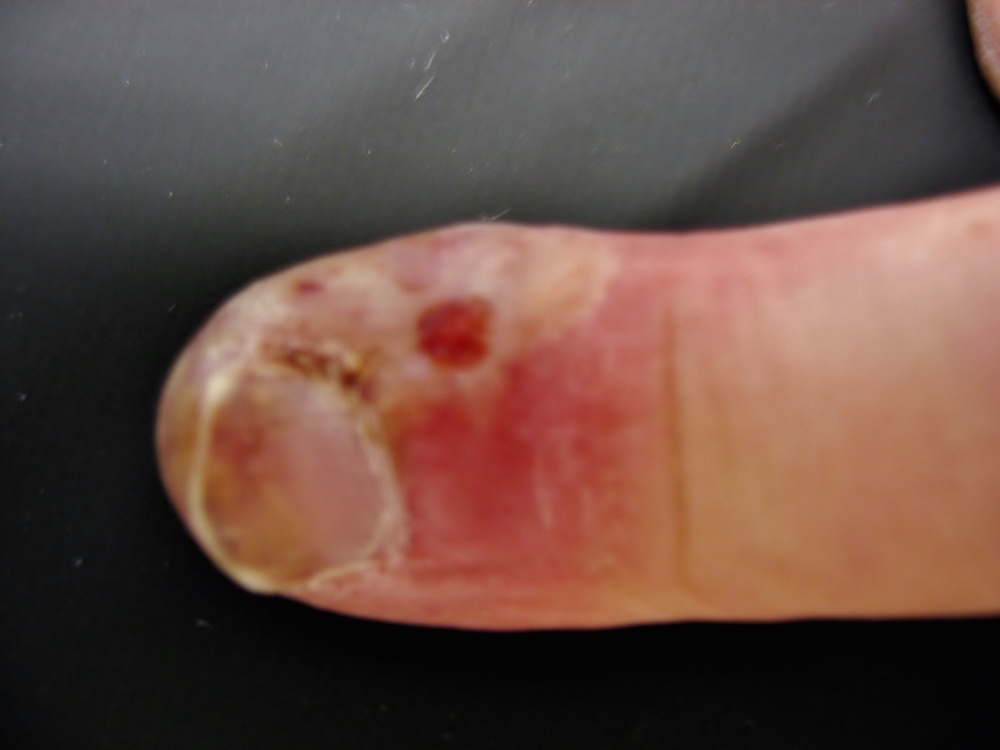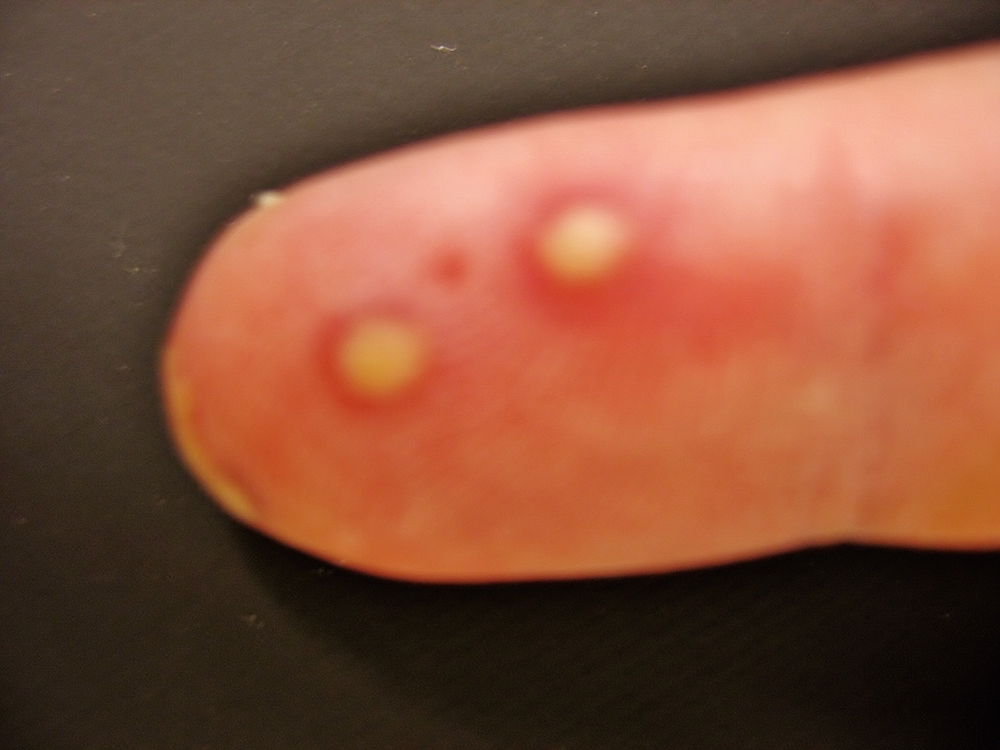Herpes Virus Gives Man a Blistery Finger Infection

A man with a red and blistered pinky finger got an unexpected diagnosis from his doctor: His finger infection wasn't caused by bacteria, but rather by the herpes virus, which usually affects the genitals or causes cold sores around the mouth, according to a new case report.
In rare cases, including in this 23-year-old man, the herpes virus can cause a condition called herpetic whitlow, the report stated. A whitlow is an infection of the fingertip, and there are several types; herpetic whitlow strikes about 2.5 per 100,000 people each year.
The infection poses a serious risk. If left untreated, or if treated improperly, it can lead to complications such as herpetic encephalitis, which is a herpes infection of the brain, according to the report, published May 23 in Journal of Medical Case Reports.
"Most whitlow is caused by bacterium," but in rare cases it can be caused by other pathogens, such as herpes, said the lead author of the case report, Dr. Peter Gathier, an emergency physician at Beatrixziekenhuis, a hospital in the Netherlands. [16 Oddest Medical Cases]

"It is important for physicians to be aware of this, as both entities (bacterial and herpetic whitlow) require a different treatment," Gathier told Live Science in an email.
Whitlow generally starts around the fingernail and then spreads to the rest of the finger. The infection takes root when there is a wound in the finger, allowing a pathogen to enter and multiply.
In the new case, the man saw his primary care physician because the little finger on his left hand had become red, swollen and blistered. His doctor prescribed antibiotics, but the infection didn't improve.
Sign up for the Live Science daily newsletter now
Get the world’s most fascinating discoveries delivered straight to your inbox.
The doctor referred the man to the emergency department, where other doctors noticed a clear fluid coming from the blisters on the finger. It was this detail that led to the diagnosis of herpetic whitlow, Gathier said.
Whitlow cases caused by bacteria are similar to those caused by herpes in that both types can involve skin that is red, swollen and warm around the infection site, Gathier said. But in cases of whitlow caused by bacteria, the sores often have pus, whereas herpetic whitlow produces small blisters on the skin that are filled with a clear or yellowish fluid, which contains the herpes virus, he said.
When asked about herpes, the man said that he had noticed small blisters on his genitals. To confirm the diagnosis, the doctors did a genetic test on material from the man's genital blisters and finger blisters, and found both tested positive for herpes simplex virus type 1.
Related: Woman's painful sores are not bug bites, but burrowing bugs
The doctors referred the man to a dermatologist for further treatment. The symptoms of a herpes virus infection usually subside on their own, but the virus hibernates within the body's nerve cells, Gathier said. Certain triggers, such as stress, can cause it to become active again, resulting in outbreaks.
If the symptoms do not subside, doctors can prescribe anti-viral agents, such as acyclovir or valacyclovir, to help the patient recover, Gathier added.
Though rare, whitlow is more common among people who work in certain professions. Many pathogens, such as bacteria and viruses, do well in warm, moist environments. So, hairdressers (who have contact with wet hair and warm air), medical and dental workers (whose hands are inside moist, warm gloves), and thumb-sucking children all have a high risk of getting the infection, Gathier said.
"Nail biting, which causes both small wounds around the nail, and the warm and moist environment of the mouth, also gives a higher risk," he said.
He advised people who suspect they have whitlow to seek immediate medical attention. The infection can spread to the entire hand, and sometimes even to the tendon, which is "very hard to treat and will generally require surgery of the hand," Gathier said.
Follow Laura Geggel on Twitter @LauraGeggel. Follow Live Science @livescience, Facebook & Google+. Original article on Live Science.

Laura is the archaeology and Life's Little Mysteries editor at Live Science. She also reports on general science, including paleontology. Her work has appeared in The New York Times, Scholastic, Popular Science and Spectrum, a site on autism research. She has won multiple awards from the Society of Professional Journalists and the Washington Newspaper Publishers Association for her reporting at a weekly newspaper near Seattle. Laura holds a bachelor's degree in English literature and psychology from Washington University in St. Louis and a master's degree in science writing from NYU.
Flu: Facts about seasonal influenza and bird flu
What is hantavirus? The rare but deadly respiratory illness spread by rodents










